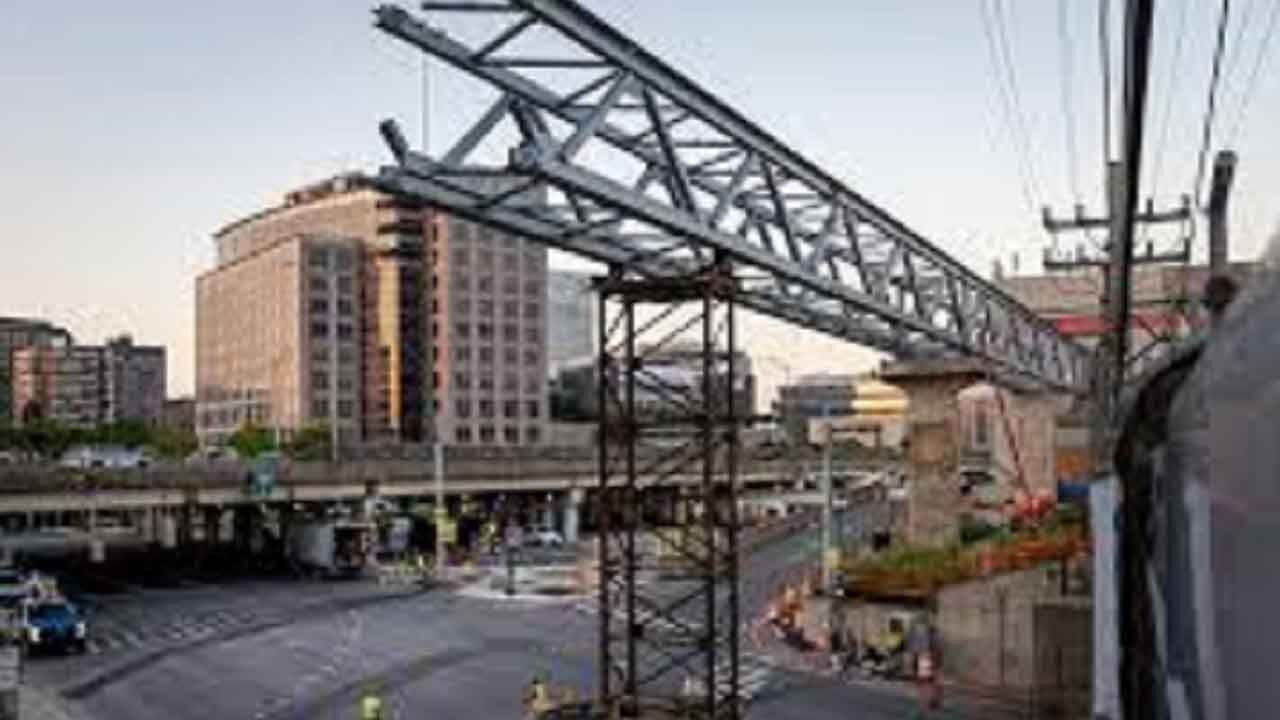Moves are also afoot to start a National Geospatial Mission to develop foundational geospatial infrastructure and data. Using PM Gati Shakti, this Mission will facilitate the modernisation of land records, urban planning, and design of infrastructure projects
Kolkata: One of the most significant thrust areas in Budget 2025 is infrastructure. The government has allocated a substantial increase in funding for key infrastructure projects, aiming to drive long-term growth and enhance connectivity across the country. Finance Minister Nirmala Sitharaman on Saturday made a series of announcements aimed at driving infrastructure development and said Rs 1.5 lakh crore will be provided towards 50-year interest-free loans to states for infrastructure projects, which would include:
There has been a huge boost to ‘Rural Infrastructure’, aimed at bridging the rural-urban divide, there is a notable rise in investments for rural roadways, sanitation, and water management.
National Infrastructure Pipeline (NIP) Expansion: An extension of the NIP is set to include new sectors like electric mobility and green energy, boosting sustainable development.
Smart Cities and Urban Infrastructure: With the growing urban population, more funds have been allocated for the modernisation of cities through technology, smart utilities, and public transportation systems.
The FM proposed that each infrastructure-related ministry will now create a three-year pipeline of projects that can be implemented in PPP mode. States will also be encouraged to do so and can seek support from the IIPDF (India Infrastructure Project Development Fund) scheme to prepare PPP proposals, said FM.
Sitharaman announced a modified Udaan scheme to enhance regional connectivity to 120 new destinations, which will help four crore additional passengers in the next 10 years. The scheme will also support helipads and smaller airports in hilly, aspirational, and North East region districts.
In addition to expanding the capacity of Patna airport and a brownfield airport in Bihar, Nirmala Sitharaman announced that greenfield airports will be facilitated in Bihar to meet the future aviation needs of the State.
Moves are also afoot to start a National Geospatial Mission to develop foundational geospatial infrastructure and data. Using PM Gati Shakti, this Mission will facilitate the modernisation of land records, urban planning, and design of infrastructure projects.
This has gone down well among the industry players. Agendra Kumar, Managing Director, ESRI India, said, “A big thank you to our Finance Minister for announcing several programs as part of the budget for 2025-26 to give a boost to the geospatial sector. The most important one is the setting up of the National Geospatial Mission to develop foundational geospatial infrastructure and data to facilitate land records modernization, urban planning, and infrastructure design. The users in the government, private sector, and the industry have lived with the lack of good foundational data for a very long time. I believe this announcement will provide the necessary resources to create geospatial data that will serve as a foundation for social and economic development.
By improving productivity across sectors such as agriculture, natural resources, energy generation and distribution, rural and urban initiatives, and governance, this effort will drive meaningful progress. Investment in research and development fuels economic growth, improves quality of life, and shapes the future. Rs 20,000 crore investment to drive private sector-led R&D and innovation, funds for Deeptech research, 10,000 fellowships under the PM Research Fellowship Scheme, and Rs 500 crore investment for a CoE in AI for education, are transformative steps to make India more competitive at the global level in terms of innovation and IP creation. Overall, the budget has set strong grounds for equipping India with the skills and resources necessary to navigate the evolving global landscape and achieve its vision of being a technologically advanced and prosperous nation.”
The Modi 3.0 government will also facilitate the upgradation of infrastructure and warehousing for air cargo, including high-value perishable horticulture produce. Cargo screening and customs protocols will be streamlined and made user-friendly.
Looking at the social or educational infrastructure, a Centre of Excellence in Artificial Intelligence (AI) for education will be set up with a total outlay of Rs 500 crore. Additional infrastructure will be created in the five IITs set up after 2014 to facilitate education for 6,500 more students. Hostel and other infrastructure capacity at IIT, Patna will also be expanded. The Mission’s focus will be on the quality of infrastructure and O&M of rural piped water supply schemes through “Jan Bhagidhari”, said Sitharaman.
The FM said that building on the success of the first Asset Monetization Plan announced in 2021, the second Plan for 2025-30 will be launched to plough back capital of Rs 10 lakh crore in new projects. Regulatory and fiscal measures will be fine-tuned to support the Plan.
Urban sector reforms related to governance, municipal services, urban land, and planning will be incentivised.
“India’s infrastructure environment is being redefined by Public-Private Partnerships (PPPs), which give crucial projects efficiency, speed, and innovation. PPPs are speeding up execution, releasing investment, and increasing industrial capacity in the areas of manufacturing, logistics, and mobility by fusing the vision of the public sector with the experience of the private sector. The goal of this partnership is to construct a robust, future-ready economy, not only roads, railroads, and ports. With a greater emphasis on digital integration, sustainability, and smooth mobility, PPPs will create high-value jobs and stimulate economic growth.
India’s competitiveness on the international scene will be further enhanced by the focus on long-term funding and structural changes. India is poised to set new standards for infrastructure quality by creating an environment where the public and private sectors collaborate. A solid PPP structure will ensure that progress is not only world-class but also inclusive, sustainable, and aligned with India’s long-term development goals,” said Vivek Lohia, Managing Director of Jupiter Wagons Limited.
Vikram Gulati, Country Head and Executive Vice President – Corporate Affairs and Governance – Toyota Kirloskar Motor, on his parts, said, “The increased allocation for capital expenditure demonstrates the government’s persistent commitment towards infrastructure modernisation, a crucial factor in accelerating growth across industries and improving their competitiveness including automotive sector.”

